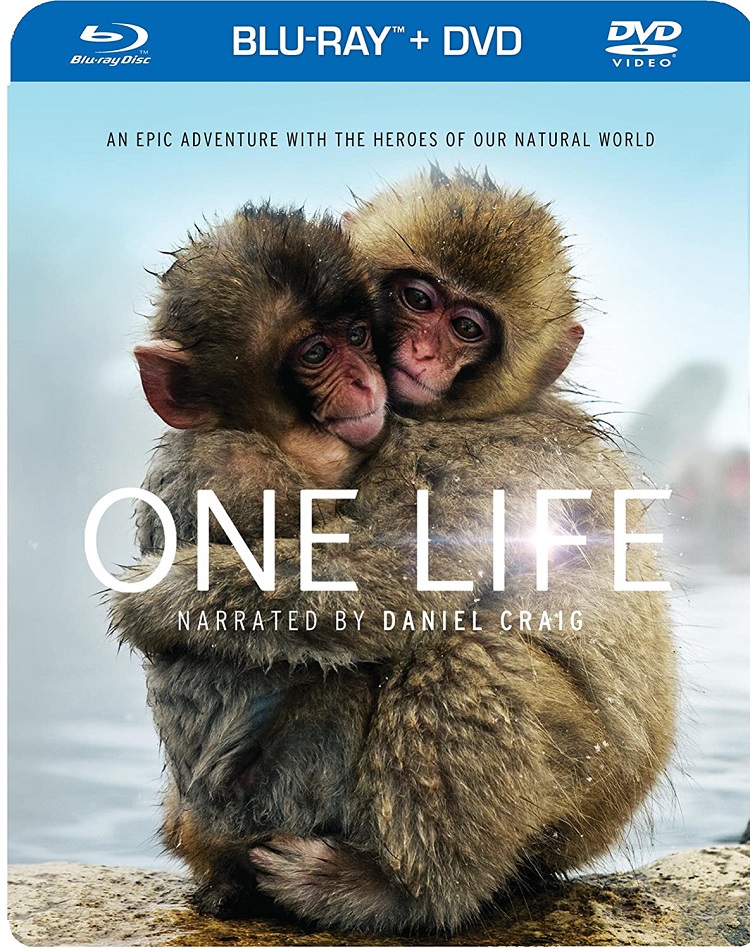
With 007 handling narration duties and some of the best nature cinematography splashing across the screen, One Life is yet another example of why nobody handles natural history better than the BBC.
A single program, about 85 minutes in length, One Life doesn’t particular break new ground. Fans of the BBC’s nature productions, like the brilliant Planet Earth and the stunning Life, may find themselves recalling some familiar territory in this show. But One Life does offer new vantage points and the material is woven into the larger tapestry with elegance and wit.
The major narrative thrust is that of the “one” journey that all life takes from beginning to end. There are similarities among the creatures on this planet just as there are differences, but we’re all plodding through the experience with one crack at it. There is a sort of accord in the fact that we’re all part of the heaving life-force crammed onto the planet.
Daniel Craig’s narration lights the way through the Michael Gunton-directed One Life with wit and authority. He is clever when he needs to be, tactfully evading some of the haughtiness that can accompany the genre. He falls short of the extraordinary and curious Sir David Attenborough, but who doesn’t?
One Life opens by exploring the importance of parents. “Wherever you look in the world,” Craig says, “so much of growing up depends on the skill and determination of the parents.”
From snow monkeys in Japan to the elephants marching for water across the desert, the documentary details different approaches to parenting in the wild. Of particular interest is the “single father” silverback gorilla, who appears very similar to a dog-tired human dad who just wants to be left alone.
The fine art of accessing food is also underlined, covering various animals’ inventive approaches to getting at the good stuff. This includes amazing (and adorable) footage of monkeys using rocks to crack nuts in Brazil. “They learn very early that to do a job properly, you’ve got to have the right tool,” says Craig before introducing a nail-biting sequence of an ibex making its way down a cliff to its food supply.
Other methods of achieving food are covered, including the fraternal attitude to hunting undertaken by cheetahs. This sequence is a tremendous example of how Gunton carefully assembles his imagery and how they serve the wider chronicle. Shots reveal the three cheetahs and then run the options of prey before closing in on the big feathery chase. It’s a wonderful moment, worthy of high cinema.
From the futility of the Venus Flytrap in South Carolina to the blood-spattered battle featuring Komodo dragons and a water buffalo in Indonesia, a lot of what’s going on in One Life isn’t exactly new. But the footage is still spectacular and the documentary has value in how it pulls the narrative together. It’s not the open-ended masterpiece of Planet Earth or Life, but it’s dazzling to look at all the same.
The Blu-ray release of One Life is wonderful to look at; as Gunton remarks in one of the bonus features, “you have to keep pinching yourself that this isn’t some kind of make-believe world.” Presented in 1080p, the Blu-ray pulls out all the vibrant colours and misses none of the details – the sight of falling snow is as rich as the rather unsociable falling rocks in Israel.
The sound is presented in DTS-HD 5.1, capturing all the bells and literal whistles of forest floors, open deserts and underwater locales. The chameleon sequence is a demonstration of audio possibility, with giant splats and wet gurgles adding to the filmic brew already on screen.
The bonus features include a director’s commentary, a standard “Making Of” feature that includes Craig, some interviews with cameramen and filmmakers, and, on the Blu-ray only, another “Making Of” feature with Gunton front and centre. There is also a small gathering of bonus shots that run from tropical birds to compelling lammergeiers.
It may be tough to sell One Life on a BBC Earth stalwart given the occurrence of familiar footage included, but this is still a captivating and energetic production. It serves well as a distillation of the scandalous amounts of material included in Planet Earth and Life, requiring less commitment from the viewer. While is also offers less ample rewards, One Life is still worth at least one look.